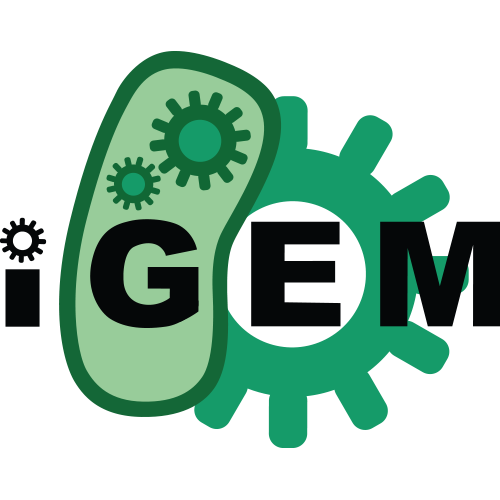| Types | DnaRegion
|
| Roles | Regulatory
promoter
|
| Sequences | BBa_M36250_sequence (Version 1)
|
Description
This is a positively-regulated promoter derived from Pseudomonas putida and codon optimized for use in E. coli. In its native setting, PalkB is upstream of the AlkB gene in Pseudomonas putida and is actived by the presence of transcription factor AlkS. Transcription factor AlkS, also derived from P. putida, is known to bind to various alkanes and hydrocarbons, especially to medium-length alkanes. According to van Beilen, et al., 2001, the region that AlkS binds to is thought to be directly upstream of the -35 region of this promoter. Further analysis on m-fold reveals that this putative AlkS binding site readily forms a hairpin structure. This sequence is able to be synthesized from raw nucleotides, however, it appears that the sequence as given is flawed and acts constitutively rather than inducibly. This promoter acts strongly, regardless of whether alkane is present or not. It is currently hypothesized that other external factors act to govern this part's usability, as previous attempts to utilize this part in conjunction with AlkS in E. coli have succeeded. Specifically, the work of Panke, et al., 1999, obtained a working PalkB promoter by excising a 273-bp fragment from P. putida utilizing restriction enzymes. The sequence constructed in this work is 159-bp and, as stated before, derived from the work of van Beilen, et al., 2001, however, efforts were made to utilize only the promoter fragment while omitting the RBS and introductory sequence of the AlkB gene.
Notes
When designing this part, efforts were made to extract only the promoter sequence while omitting the surrounding base-pairs as presented by van Beilen, et al., 2001. This may have proven to be a fatal flaw, as it is thought that the original surrounding sequences contribute to the functionality of the part as a whole.
Source
Van Beilen, J.B., S. Panke, S. Lucchini, A.G. Franchini, M. Rothlisberger, and B. Witholt. "Analysis of Pseudomonas Putida Alkane Degradation Gene Clusters and flanking Insertion Sequences : Evolution and Regulation of the Alk Genes." Microbiology 147 (2001): 1621-630.
